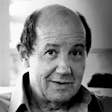Online course: Big History: Connecting Knowledge
Dates: any time
Duration: 29 hours
Rating: 4.8 / 5.0 out of 1412 ratings (see top rating courses here)
Participating countries: any country
Apply here: Application form
Organizer: Macquarie University at Coursera
Cost:
- FREE
- $49 with sharable certificate
Big History: Connecting Knowledge
We currently face unprecedented challenges on a global scale. These problems do not neatly fall into disciplines. They are complicated, complex, and connected. Join us on this epic journey of 13.8 billion years starting at the Big Bang and travelling through time all the way to the future. Discover the connections in our world, the power of collective learning, how our universe and our world has evolved from incredible simplicity to ever-increasing complexity. Experience our modern scientific origin story through Big History and discover the important links between past, current, and future events. You will find two different types of lectures. ‘Zooming In’ lectures from multiple specialists enable you to understand key concepts through the lens of different disciplines, whilst David Christian’s ‘Big History Framework’ lectures provide the connective overview for a journey through eight thresholds of Big History.
Instructors

David Christian
Professor
Big History Institute

David Baker
Associate Lecturer
Big History Institute
Programme
WEEK 1: 4 hours to complete
Big History, Critical Thinking, & Transdisciplinarity
Welcome to Big History! This is where we use the power of a transdisciplinary perspective to explore broad trends in the grand narrative of 13.8 billion years. In this module you’ll learn how Big History works, explore critical-thinking, how we know what we know, and learn about the first “3 Thresholds of Increasing Complexity”, milestones around which Big History is organized, starting at the beginning of the Universe, space, time, and everything in existence.
BIG HISTORY FRAMEWORK: David Christian – What is Big History?
ZOOMING IN: Richard Menary – What is the relationship between historical & scientific explanation?
ZOOMING IN: Jenny Duke-Yonge – How do we decide what to believe?
BIG HISTORY FRAMEWORK: David Christian – How did our Universe get more complex?
BIG HISTORY FRAMEWORK: David Baker – Big History, Critical Thinking, & Transdisciplinarity
LOOKING BACK, LOOKING FORWARD: David Baker – Starting Out
Big History, Critical Thinking, Transdisciplinarity
WEEK 2: 6 hours to complete
The Universe, Stars, and Planets
Our journey across space and time has begun. In this module, in a timeline that covers billions of years, we’ll explore the origins of the universe, new stars & elements, and the solar system. You’ll have the opportunity to examine cosmology, astronomy, physics, chemistry, and geology.
Mind-Expanding, not Head-Exploding
ZOOMING IN: Quentin Parker – What is the observable evidence for the Big Bang?
ZOOMING IN: Quentin Parker – How do we know how stars form?
ZOOMING IN: Ian Jamie – Where did the elements come from?
ZOOMING IN: Ian Jamie – What is the periodic table?
BIG HISTORY FRAMEWORK: David Christian – Why is Threshold 4 significant?
ZOOMING IN: Craig O’Neill – How did the solar system form?
ZOOMING IN: Dick Flood – What is our Earth’s history and how do we know it?
BIG HISTORY FRAMEWORK: David Baker – The Universe, Stars, & Planets
LOOKING BACK, LOOKING FORWARD: David Baker – From the Inanimate Universe to Life1
The Universe, Stars, and Planets
WEEK 3: 6 hours to complete
The Evolutionary Epic
Travel through the evolutionary epic from the origin of life c.3.8 billion years ago, the evolution of complex forms after c.550 million years ago, to the evolution of some very odd primates – humans. Zoom in and explore evolutionary biology, geology, palaeontology, and anthropology.
BIG HISTORY FRAMEWORK: David Christian – Why is Threshold 5 important?
ZOOMING IN: Michael Gillings – Where did life come from?
ZOOMING IN: Simon George – How do we get dates for Earth’s history?
ZOOMING IN: Michael Gillings – How does evolution work?
ZOOMING IN: Glenn Brock – How do palaeontologists study the history of life?
BIG HISTORY FRAMEWORK: David Christian – Why is Threshold 6 important?
ZOOMING IN: Greg Downey – Why did our ancestors evolve such unusual abilities?
BIG HISTORY FRAMEWORK: David Baker – The Evolutionary Epic
LOOKING BACK, LOOKING FORWARD: David Baker – The “Two Cultures” Meet
The Evolutionary Epic
WEEK 4: 5 hours to complete
Human History
After billions of years of cosmic evolution, our own rather peculiar species has emerged to cultivate even greater heights of increasing complexity. In this module, we will explore the long trend of human development from the origin of our species c.200,000 years ago to the eve of the Industrial Revolution. You will explore archaeology, paleography, and ancient, medieval, and early modern history.
ZOOMING IN: Yann Tristant – How did people live in the Palaeolithic?
BIG HISTORY FRAMEWORK: David Christian – Why is Threshold 7 important?
ZOOMING IN: Susanne Binder – Where did writing come from?
CASE STUDY: Susanne Binder – Reading Hieroglyph
ZOOMING IN: Peter Edwell – What were the Silk Roads?
BIG HISTORY FRAMEWORK: David Christian – What were the main changes in agrarian civilizations?
BIG HISTORY FRAMEWORK: David Baker – Human History
LOOKING BACK, LOOKING FORWARD: David Baker – Collective Learning’s “Snowball Effect”
Human History
WEEK 5: 5 hours to complete
Modernity
We have now arrived at one of the most dynamically changing periods ever seen in human history – our own times. This module will explore how the agrarian era that had lasted for 10,000 years transitioned to the modern era with its explosion of production and complexity. We will explore modern history, political science, and economics.
ZOOMING IN: Kate Fullagar – What was the Industrial Revolution?
ZOOMING IN: Mark Hearn – How did Modernity evolve after the Industrial Revolution?
ZOOMING IN: Stephanie Lawson – How far can globalization go
ZOOMING IN: Wylie Bradford – Why is the world economy so integrated?
BIG HISTORY FRAMEWORK: David Christian – Why is Threshold 8 important?
BIG HISTORY FRAMEWORK: David Baker – Modernity
LOOKING BACK, LOOKING FORWARD: David Baker – Onward to Threshold
Modernity
WEEK 6: 4 hours to complete
The Future
We’ve looked far into the deep past, now is the time to take what we’ve learned and look ahead. In this module we will explore the near and distant future, what challenges we face this century, how we study the future on the scale of billions of years, and where complexity may go from here. The section incorporates climatology, cosmology, physics, and foresight.
BIG HISTORY FRAMEWORK: David Christian – What might Threshold 9 be?
ZOOMING IN: Lesley Hughes – How is our climate changing and what does this mean for our future?
ZOOMING IN: Quentin Parker – Why is the future of the Universe easier to study than the future of humanity?
BIG HISTORY FRAMEWORK: David Christian – What have we learned from the Big History story?
The Future
Leave a Reply